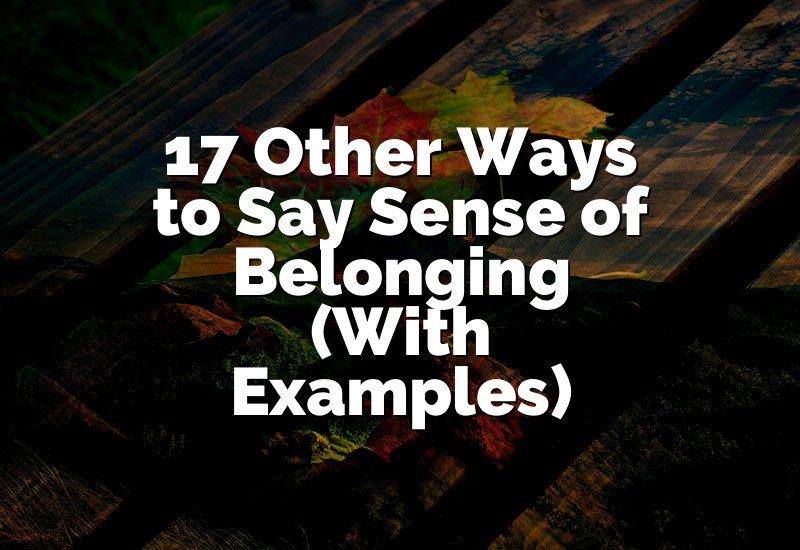You know when something just gets going? Maybe a project starts or a party kicks off. Sometimes, you want different ways to say “began” to keep things fresh and fun. Whether it's "started," "launched," or "got underway," these words all show the moment something takes off.
1. Started
Started means the moment something comes into action. It's the most common way to say began. For example, "She started her homework after dinner." Started shows you are doing something new. It fits in many situations like school, work, or fun activities. You can say "I started a new book," or "The game started at noon." It's easy to use and understood everywhere. Started is a clear and simple word that shows the beginning of any event or action.
2. Commenced
Commenced means began, but sounds a little more formal. For example, "The meeting commenced right on time." People use it in formal writing, like reports or speeches. It shows something has officially begun. You might hear it in places like school or work. Commenced is a good word to use when you want to sound polite or serious about when something started. It is a bit fancier than started but means the same thing — the beginning of an event or action.
3. Initiated
Initiated means you caused something to begin or started it yourself. For example, "He initiated the project last week." It shows you took the first step to start something. Initiated is used when someone leads or sets things in motion. It can be in work, clubs, or personal plans. When you say initiated, you mean you made sure the action began. It's a good word to show leadership or the first action in a process.
4. Launched
Launched means to start something, often big or important. For example, "They launched the new website yesterday." It is used a lot for products, businesses, or events. When you launch, it sounds exciting and planned. It's like throwing something into the world for the first time. You can also say, "The rocket was launched into space." Launched shows a clear and powerful beginning, often for something new and special.
5. Opened
Opened means to begin by making something available or accessible. For example, "The store opened at 9 AM." It shows that something is now ready for use or people can enter. You use opened for shops, events, letters, or places. It's about starting by making a space or service ready. You can also say, "He opened the letter carefully." Opened means the first moment something starts for people to use or join.
6. Inaugurated
Inaugurated means to start something with a special ceremony. For example, "The new president was inaugurated last Monday." It is often used for big events like a building, leader, or project. Inaugurated shows a formal and important beginning. People gather to celebrate or mark this start. It is a word that means more than just starting; it means an official or honored beginning. You can use inaugurated when something new is opened or begins in a grand way.
7. Originated
Originated means the place or time when something began. For example, "Jazz music originated in New Orleans." It shows the source or start of something. Originated tells where or how an idea, thing, or action began. You can say, "This tradition originated long ago." It is used when talking about history or where something first came from. Originated is a helpful word when you want to talk about the roots or beginning of things.
8. Set in motion
Set in motion means to start a process or action that keeps going. For example, "The new law set in motion many changes." It shows that starting something caused other things to happen. You use this when you want to show the beginning of a series of events. "Set in motion" feels like pushing a big wheel that keeps turning. It's a phrase to say something started and led to more actions or results.
9. Kicked off
Kicked off is a casual way to say began. For example, "The party kicked off at 8 PM." It comes from sports, where a game starts by kicking a ball. It's fun and informal. You can use it with events, parties, or activities. Saying "kicked off" makes it sound lively and exciting. It shows the first moment when things get rolling. It's a popular phrase for a cheerful or energetic start.
10. Got underway
Got underway means began moving or started a process. For example, "The race got underway after the flag was raised." It shows something started and is in progress. This phrase is often used for events or journeys. Saying "got underway" is a clear way to show the moment when something moves from waiting to action. It's useful for formal and informal talk, and it shows progress after the start.
11. Broke ground
Broke ground means to start building or a big project, especially construction. For example, "They broke ground on the new school last week." It shows the first work on a new place. People often use it for important building projects. "Broke ground" feels like digging the first hole to start something big. It's a phrase full of energy and hope, showing the very beginning of creating something new.
12. Embarked
Embarked means to begin a journey or a big task. For example, "She embarked on a trip around the world." It shows starting something important and sometimes difficult. Embarked is used for travel, work projects, or life changes. It means you are setting off on a new path. Saying "embarked" sounds serious and adventurous. It's a good word to show the start of an exciting or important experience.
13. Set about
Set about means to begin doing something actively. For example, "He set about cleaning his room early." It shows that someone started working on a task with energy. You use it when someone moves from planning to action. "Set about" is a friendly phrase for starting a job or activity. It means you didn't wait but got right to work. It's a simple way to say someone began doing something quickly and seriously.
14. Went ahead
Went ahead means to begin or continue even if there are problems or doubts. For example, "They went ahead with the plan despite the rain." It shows courage or decision to start. People say "went ahead" when someone moves forward without stopping. It's about not waiting or giving up. You can use it to show a strong start or action even in hard times. It's a good phrase for brave or confident beginnings.
15. Entered upon
Entered upon means to begin something, especially a new phase or task. For example, "He entered upon his new job last month." It sounds formal and is used for important starts in life or work. "Entered upon" shows starting a new stage or responsibility. You use it when something new and serious begins. It is a good phrase to talk about big changes or new roles.
16. Took up
Took up means to begin learning or doing something regularly. For example, "She took up painting as a hobby." It shows starting a new activity or interest. "Took up" is common when talking about skills, sports, or hobbies. It means you begin and continue something over time. Saying "took up" makes it clear you started something new to spend time on. It's a friendly and easy phrase to use.
17. Started out
Started out means to begin in a certain way or place. For example, "He started out as a teacher before becoming a writer." It talks about the beginning of a journey or career. "Started out" shows the first step in a story or path. It helps explain how someone or something began before changing or growing. It's useful for sharing personal or work history.
18. Sprang up
Sprang up means to begin quickly or suddenly. For example, "New shops sprang up in the city last year." It shows fast growth or appearance. You use it when something starts and grows in a short time. "Sprang up" feels lively and natural, like plants growing fast. It's a great phrase to show sudden beginnings or changes in places or ideas.
19. Dawned
Dawned means the moment when something starts to be clear or begins happening. For example, "A new idea dawned on him during the meeting." It shows the start of understanding or awareness. "Dawned" is used when something begins inside your mind or feelings. It's a gentle and thoughtful way to say something began. Dawned feels like the first light of the day, showing new thoughts or moments.
20. Triggered
Triggered means to cause something to begin suddenly. For example, "The alarm triggered the evacuation." It shows a start caused by an event or action. "Triggered" is used when one thing makes another begin right away. It can be for feelings, actions, or processes. Saying "triggered" means something pushed or set off a beginning. It's useful for cause and effect situations.
21. Ushered in
Ushered in means to start or bring in something new. For example, "The new laws ushered in changes." It shows a clear start and a welcome of something different. "Ushered in" sounds formal and positive. It's used when a new time or event begins. It's like guiding people into a new period. You can use it for big changes or fresh starts.
22. Set forth
Set forth means to start explaining or presenting something. For example, "She set forth her ideas clearly." It shows beginning to share or explain plans or stories. "Set forth" is formal and often used in speeches or writing. It means starting to make something known. It's a good phrase to show the start of a presentation or argument.
23. Commenced operations
Commenced operations means to begin working or functioning, often for businesses or machines. For example, "The factory commenced operations last month." It shows the start of active work or production. "Commenced operations" is formal and used in business or technical settings. It means the official start of running a system, company, or machine.
24. Got going
Got going means to begin moving or start doing something. For example, "The project got going after the meeting." It's a casual phrase for starting or making progress. "Got going" shows action and movement. It's used in everyday talk to say things began well or started to work. It feels friendly and easy.
25. Activated
Activated means to start a system or make something work. For example, "She activated the alarm system before leaving." It shows turning something on or starting its function. "Activated" is often used for machines, plans, or ideas that need a start signal. It means the moment something begins working or becomes active.
26. Went live
Went live means to begin broadcasting or making something available online or to the public. For example, "The website went live at midnight." It shows the first moment something starts working and can be used or seen by people. "Went live" is popular for events, streams, or launches on the internet or TV. It means a public start, often with excitement.

Final Thoughts
Now you have 26 easy and fun ways to say began. Whether you want to sound casual like "got going" or formal like "commenced," these words fit many situations. Using different synonyms keeps your writing and talking fresh and interesting. Try them in your next story or chat to make beginnings exciting and clear. Remember, every start is a chance to say it in a new way!
| Synonym | Meaning | Example |
|---|---|---|
| Started | To begin doing something | She started her homework after dinner. |
| Commenced | To begin, often formally | The meeting commenced right on time. |
| Initiated | To cause something to begin | He initiated the project last week. |
| Launched | To start something big or important | They launched the new website yesterday. |
| Opened | To make something ready to use | The store opened at 9 AM. |
| Inaugurated | To start with a special ceremony | The president was inaugurated Monday. |
| Originated | To begin or come from somewhere | Jazz originated in New Orleans. |
| Set in motion | To start a process | The law set in motion many changes. |
| Kicked off | To begin in a lively way | The party kicked off at 8 PM. |
| Got underway | To begin and move forward | The race got underway fast. |
| Broke ground | To start building or construction | They broke ground on the new school. |
| Embarked | To begin a journey or project | She embarked on a big adventure. |
| Set about | To begin doing something | He set about cleaning his room. |
| Went ahead | To start despite problems | They went ahead with the plan. |
| Entered upon | To begin a new phase | He entered upon a new job. |
| Took up | To start a hobby or activity | She took up painting last week. |
| Started out | To begin a path or career | He started out as a teacher. |
| Sprang up | To begin quickly or suddenly | Shops sprang up in the town fast. |
| Dawned | To start being understood | A new idea dawned on him. |
| Triggered | To cause something to begin | The news triggered a reaction. |
| Ushered in | To bring in a new time or event | The rules ushered in big changes. |
| Set forth | To begin explaining or sharing | She set forth her opinion clearly. |
| Commenced operations | To begin working or producing | The company commenced operations early. |
| Got going | To begin moving or working | The event got going fast. |
| Activated | To turn something on or start it | She activated the alarm system. |
| Went live | To begin a stream or launch | The stream went live at noon. |









